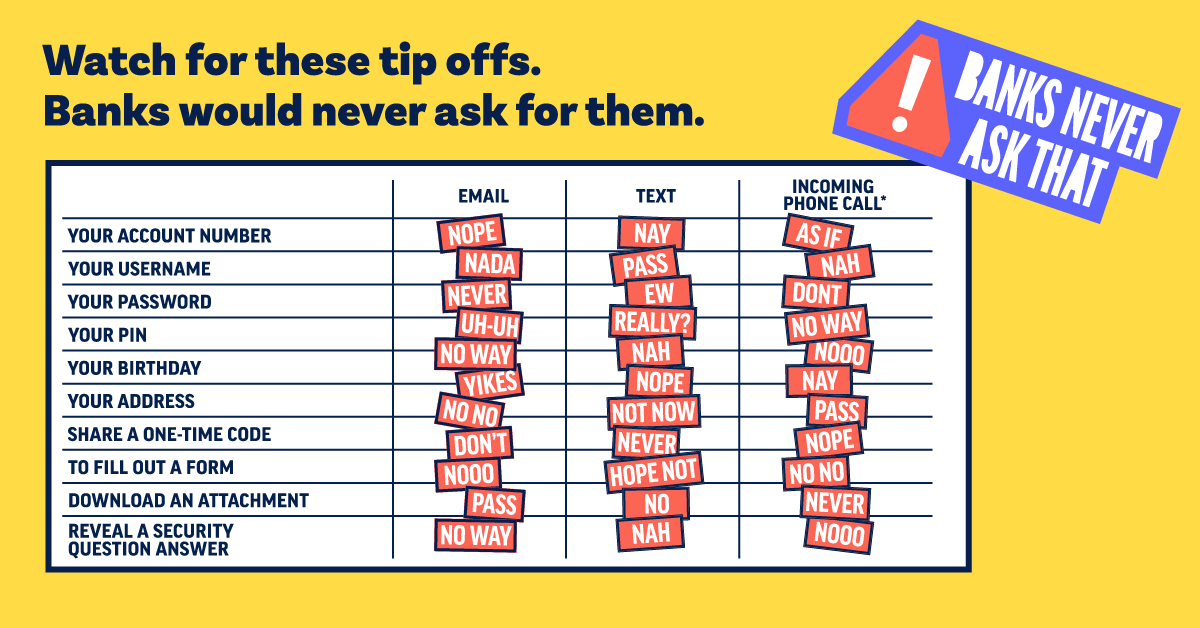Banks Never Ask That!
11/06/2024

Every day, thousands of people fall victim to fraudulent emails, texts and calls from scammers pretending to be their bank. In 2023, scammers stole over $10 billion from regular people like you. And by accessing more information electronically, this number keeps growing. At TruBank, we’re committed to helping you identify common red flags so you may protect your personal information. We’ve joined with the American Bankers Association and banks across the country in a nationwide effort to fight phishing—one scam at a time.
It starts with these four words: Banks Never Ask That. Because when you know what sounds suspicious, you’ll be less likely to be fooled.
Text Messages:
If you receive a text message from someone claiming to be your bank asking you to sign in, or offer up your personal information, it’s a scam. Banks never ask that. Think before you reply as scammers want you to feel confused and rushed. Delete the message so you don’t risk accidentally replying to or save a fraudulent text message.
Emails:
Watch out for emails that ask you to click a suspicious link or provide personal information. The sender may claim to be someone from your bank, but it’s a scam. Banks never ask that. Email scams may use scare tactics, threats, or high-pressure language to get you to act quickly. In the same way defensive driving prevents car accidents, always treating incoming email as a potential risk will protect you from scams.
Phone Calls:
Would your bank ever call you to verify your account number? No! Banks never ask that. Never share sensitive information like your bank password, PIN, or a one-time login code with someone who calls you unexpectedly. Banks may need to verify personal information if you call them, but never the other way around. If you’re ever in doubt that the caller is legitimate, just hang up and call the bank directly at a number you trust.
Mobile Payment Apps:
Would your bank ask you to pay bills using a payment app (Cash App, PayPal, Venmo, Zelle)? No! Banks never ask that. Even when a text or email from a payment app seems legitimate, you should always verify by calling your bank or payment app’s customer service number. Use payment apps to pay friends and family only. Don’t send money to someone you don’t know or have never met in person. Payment apps are just like handing cash to someone.


